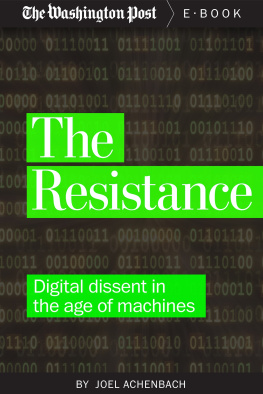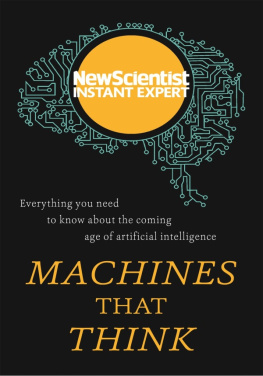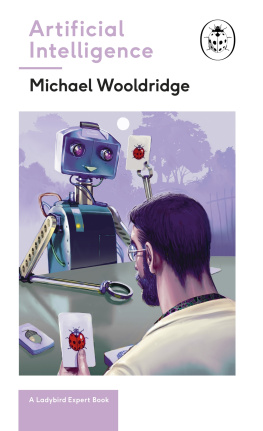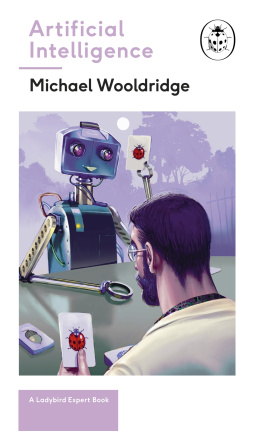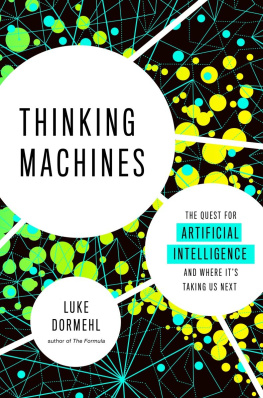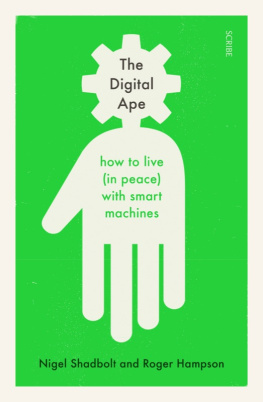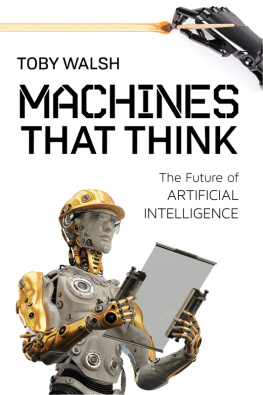Connect with Diversion Books
Connect with us for information on new titles and authors from Diversion Books, free excerpts, special promotions, contests, and more:
The Resistance:
Digital Dissent in the Age of Machines
Joel Achenbach,
The Washington Post
Introduction
Im of the generation that became digital gradually and then suddenly. The personal computer came first, then email, but these were gentle ripples compared to the great crashing wave of the Internet, which sent us tumbling ankles over elbows amid foam and froth. Sure, its been great fun. We all love the new technologies, dont we? I cant imagine how we used to do our work before the days of laptops, cellphones, Google, GPS, the cloud. One doubts ones own memory: At my college newspaper did I really write stories on a manual typewriter? Did we really do a lot of our editing with the edge of a ruler (to rip the paper neatly) and a jar of paste? Not plausible!
Now were well into the second decade of the new millennium, and this digital revolution is fully part of our reality, our infrastructure, the basic texture of our lives. The digital utopians speak of new wonders aheadartificial intelligence and augmented intelligence, a merger of humans and machines, and the coming of an era of transhumanism that we cannot possibly imagine.
But there are dissenters. They are getting louder, and more organized. These are people who do not embrace the usual utopian narrative that comes out of Silicon Valley.
They have many objections. They see the rise of a surveillance state. They see personal data turned into a commodity. They see profits swirling to a few huge corporations. They see basic human interactions impaired by gadgetry.
The most apocalyptic thinkers fear that machines could soon escape our control. They believe that artificial intelligence could turn out to be our most catastrophic invention.
These people do not form a coherent movement by any means. But if they share a common message, its that technology should serve humans and not the other way around.
In the past year I have tried to understand this shadow Zeitgeist. What came out of this reporting were two storieswe called our package The Resistancethat explored the resurgent humanism in the age of machines. This is hardly a comprehensive report, but its a start. I have a feeling were going to be talking about these things for a very long time.
Joel Achenbach
National Enterprise Reporter
About the Author
Joel Achenbach has been a staff writer for The Washington Post since 1990. He has reported for the Style section, the Magazine, Outlook, and, since 2007, the national desk, focusing on science and politics. For seven years he wrote the syndicated column Why Things Are. In 1999 he started the newsrooms first online-only column, "Rough Draft," and in 2005 began writing washingtonpost.com s first blog, Achenblog , the longest-running blog of any major newspaper in America. A native of Gainesville, Fla., Achenbach graduated in 1982 from Princeton University and served a four-year term on the universitys Board of Trustees. He has taught journalism at Princeton and Georgetown University. His Why and Rough Draft columns have been collected in four books, and he has authored three books touching on science, history and technology:
A Hole at the Bottom of the Sea, an account of the Deepwater Horizon disaster and its aftermath (2011)
The Grand Idea: George Washingtons Potomac and the Race to the West (2004)
Captured By Aliens: The Search for Life and Truth in a Very Large Universe (1999)
More from The Washington Post
Get the latest news and essential information directly in your inbox from The Washington Post.
Sign up for free e-newsletters and alerts.
Connect with The Washington Post on Twitter @washingtonpost and on Facebook.
Learn more about The Washington Post Series:
The Resistance
They are the digital dissenters.
They see tech companies tracking our every move.
They want to go back to the basics to a world where the interests of humans come before robots, algorithms and the needs of Silicon Valley.
Meet the people on Team Human.
December 26, 2015
Astra Taylors iPhone has a cracked screen. She has bandaged it with clear packing tape and plans to use the phone until it disintegrates. She objects to the planned obsolescence of todays gadgetry, and to the way the big tech companies pressure customers to upgrade.
Taylor, 36, is a documentary filmmaker, musician and political activist. Shes also an emerging star in the world of technology criticism. Shes not paranoid, but she keeps duct tape over the camera lens on her laptop computer because, as everyone knows, these gadgets can be taken over by nefarious agents of all kinds.
Taylor is a 21st-century digital dissenter. Shes one of the many technophiles unhappy about the way the tech revolution has played out. Political progressives once embraced the utopian promise of the Internet as a democratizing force, but theyve been dismayed by the rise of the surveillance state, and the near-monopolization of digital platforms by huge corporations.
Astra Taylor is an emerging star among techno-skeptics, who are unhappy with how the tech revolution has played out, and who sense that the priorities have been turned upside down. We need a movement, she said, that says no to the existing order. (Yana Paskova/The Washington Post)
On Nov. 13 and 14, Taylor and more than 1,000 activists, scholars and techies gathered at the New School in New York City for a conference to talk about reinventing the Internet. They dream of a co-op model: people dealing directly with one another without having to go through a data-sucking corporate hub.
The powerful definitely do not want us to reboot things, and they will go to great lengths to stop us from doing so, and they will use brute force or they will use bureaucracy, Taylor warned the conferees at the close of the two-day session.
We need a movement, she said, that says no to the existing order.
The dissenters have no easy task. Were in a new Machine Age. Machine intelligence and digital social networks are now embedded in the basic infrastructure of the developed world.
Much of this is objectively good and pleasurable and empowering. We tend to like our devices, our social media, our computer games. We like our connectivity. We like being able to know nearly anything and everything, or shop impulsively, by typing a few words into a search engine.
But theres this shadow narrative being written at the same time. Its a passionate, if still remarkably disorganized, resistance to the digital establishment.
Techno-skeptics, or whatever you want to call them humanists may be the best term sense that human needs are getting lost in the tech frenzy, that the priorities have been turned upside down. They sense that theres too much focus on making sure that new innovations will be good for the

